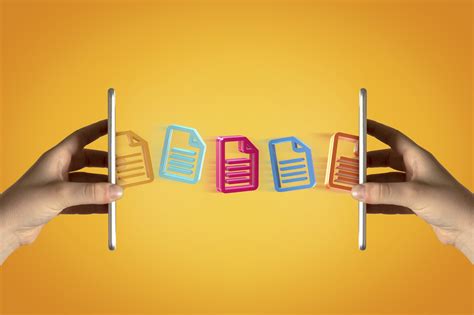
We live in a world where security and privacy are of utmost importance, especially when it comes to sensitive documents. Nowadays, most people rely on the internet for communication purposes and emailing is an easy and convenient way to send sensitive information. Unfortunately, the very convenience that makes email so popular also makes it vulnerable to hackers and other cyber criminals.
But don’t worry, there are ways you can protect yourself from having your data compromised while using emails. Here’s how you can keep your sensitive documents safe through emailing:
Use Strong Passwords
Creating strong passwords should be one of your top priorities when it comes to sending any type of sensitive document via email. A good password should contain a combination of upper and lower case letters, numbers, and special characters. Avoid using common words or phrases which can be easily guessed or cracked by hackers.
Use Encryption
Encryption is one of the safest ways to protect your sensitive documents while emailing. It scrambles the data so that it can’t be read by anyone other than the intended recipient. There are various encryption programs available that you can use to ensure your documents remain secure during transmission. Make sure you always check if your emails have been encrypted before sending them off.
Use Secure Email Providers
When selecting an email provider, make sure you choose one that offers advanced security features including two-factor authentication, SSL/TLS encryption, and anti-spam filters. These features will help protect your emails from any potential threats and make sure that your information stays secure at all times.
Avoid Free Wi-Fi Hotspots
Free public Wi-Fi hotspots are an open invitation for hackers to intercept data, including sensitive documents. It’s best to avoid using public Wi-Fi when sending important emails or documents as they can easily be intercepted by hackers in the area. If you must use a public network, make sure it has strong security protocols in place before connecting to it.
Use Accounts Separately from Personal Ones
It is always best practice to keep business accounts separate from personal ones. This way, you won’t have to worry about your personal information being compromised if the business account is hacked. Additionally, this will help keep everything organized and make it easier for you to find important emails or documents in case you ever need them.
By following these guidelines, you can be sure that your sensitive documents are safe and secure when sending them via email. Just remember to always stay vigilant and pay attention to who has access to your emails as well as any potential threats that may arise. With these simple steps taken care of, you can rest assured knowing that your data will remain secure during transmission.
With Bigg.ly, you can effortlessly upload files up to 4GB per transfer, and there are no restrictions on file size. The platform ensures your files’ security by encrypting them and allowing you to secure them with passwords. Additionally, Bigg.ly conducts virus scans on all files before sending them on their way. With these features, Bigg.ly simplifies the process of sending large files online, leaving behind all previous challenges.